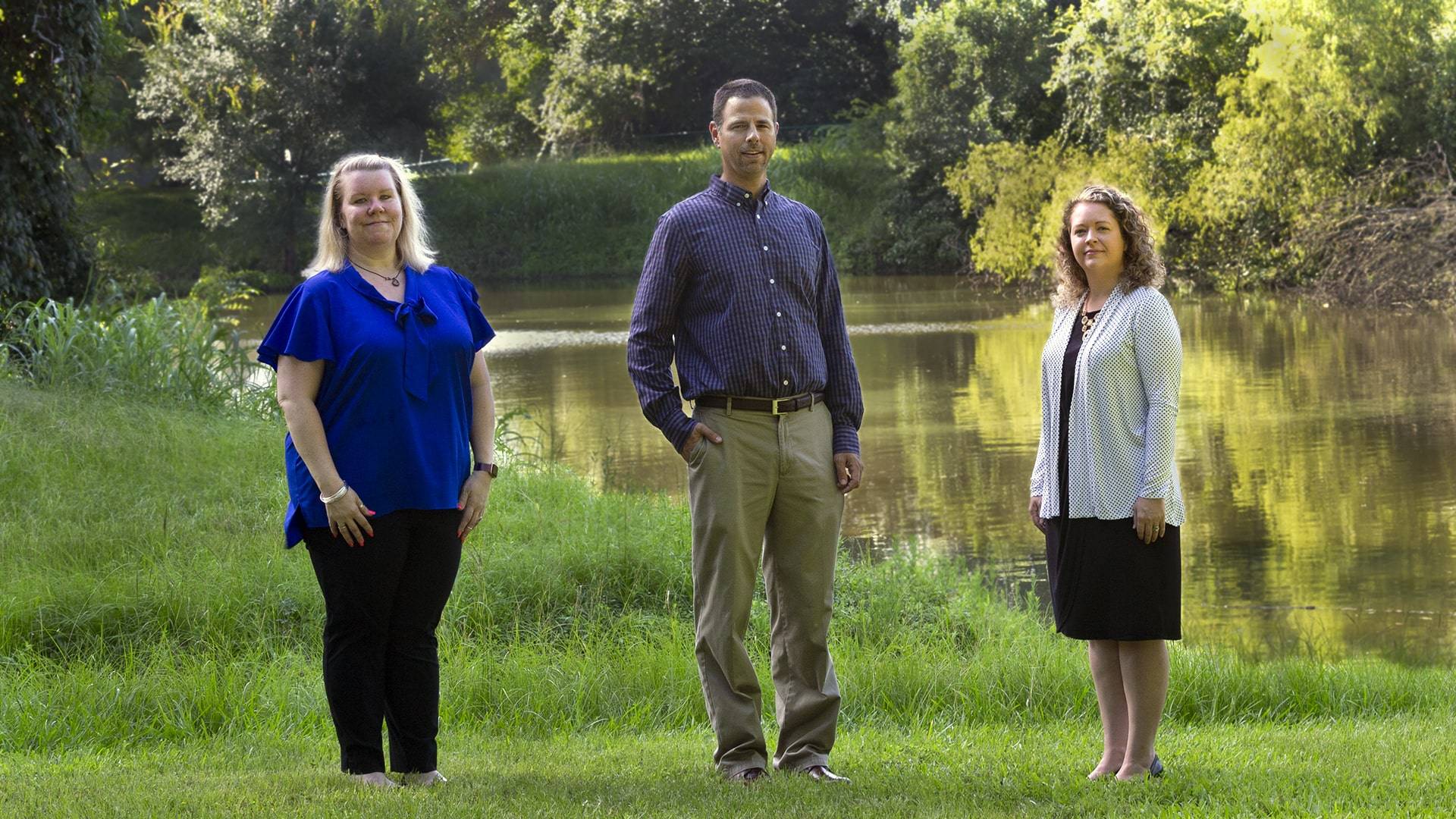- Future Students
- How to Apply
- Visit UHCL
- Admitted Students
- Tuition, Costs and Aid
- Degrees and Programs
- Contact Admissions
- Current Students
- Class Schedule
- Academic Calendar
- Advising
- Events
- Library
- Academic Resources and Support
- Student Services and Resources
- Alumni
- Lifetime Membership
- Alumni Events
- Update Your information
- Awards and Recognitions
- Give to UHCL
UHCL profs publish first study on mental health effects of Harvey
July 23, 2019 | UHCL Staff

Associate Professor of Clinical Psychology Steven Bistricky is among four University of Houston-Clear Lake professors whose research paper, titled “Surviving the Storm: Avoidant Coping, Helping Behavior, Resilience and Affective Symptoms Around a Major Hurricane-Flood,” is the first major published study on mental health effects related to Hurricane Harvey.
The paper was made available online in July ahead of the October edition of the Journal of Affective Disorders, which publishes papers exploring affective disorders including depression, mania, mood spectrum, emotions and anxiety. Professor of Clinical Psychology Mary Short, Associate Professor of Social Work Heather Kanenberg, Assistant Professor of Clinical Psychology Sara Elkins, Kristina Harper, a UH-Clear Lake health service psychology doctoral student, as well as three professors from other universities co-authored the paper.
“A hurricane is also a psychological event, and it has major effects on everyone’s lives in the area,” said Bistricky. “We were interested in getting an idea of the effects and factors that would make certain people more resilient from stressors, versus some factors that might make people become more vulnerable to adverse mental health outcomes.”
Few studies have been able to research mental health in a large sample within four-to-10 weeks after a disaster, as this study did. “This study developed after a conversation I had with my colleagues about the scope of the disaster,” Bistricky said. “We wanted to study resilience, vulnerability, and community helping behaviors to get a grasp of what might prompt helping behaviors, and what those effects would be.”
The study’s main findings revealed that many participants surveyed were experiencing some depressive symptoms or PTSD symptoms, with up to one in four being at a level where mental health services would be recommended. Not surprisingly, people who lost the most from Hurricane Harvey, who experienced the greatest disruption, and who had experienced the most threat to their lives had the greatest PTSD and depressive symptoms.
Bistricky said that those who used avoidant coping strategies – refusing to accept what happened, disengaging, self-blame, or using substances to distract themselves – were more prone to PTSD or depression. “People who believed they had less ability to bounce back from stressors and less social support were more likely to use avoidant coping,” he said. “Those who had a good support system were less likely to use avoidant coping strategies and were less vulnerable to depression and PTSD.”
Greater “helping behavior” was linked to greater PTSD symptoms, but not to depressive symptoms. “Because this study was not longitudinal, we cannot know if the connection is causal or in what direction the relationship runs,” he said. “Helping others in a disaster setting can expose a person to more health hazards and ‘vicarious trauma’ from witnessing others’ intense hardships, but we also know that altruistic action can have positive effects on mental health, like happiness and greater perceived community connection. Perhaps a mix of the negative and positive explains why people who helped others more did not report greater depression.”
Bistricky said they had surveyed 801 people directly affected by Harvey and determined that the amount of avoidant coping strategy use was most strongly linked to PTSD and depression symptoms. “Our findings suggest that in future disaster scenarios, systems of care might provide the most benefit by approaching those struck the hardest and those who may be least resilient and least socially connected,” he said. “These people could be educated and supported in using healthy coping strategies like acceptance, planning, and positive reframing so they would not succumb to avoidant coping that would result in the distress and compromised daily functioning of PTSD or depression.”
Almost everyone in the Houston-Galveston area was affected by Harvey. “We are honored that so many people helped us better understand what compromises and what promotes mental health under these circumstances,” he said. “This study’s findings might help ensure that in the future, assistance goes to where it is needed most.”






